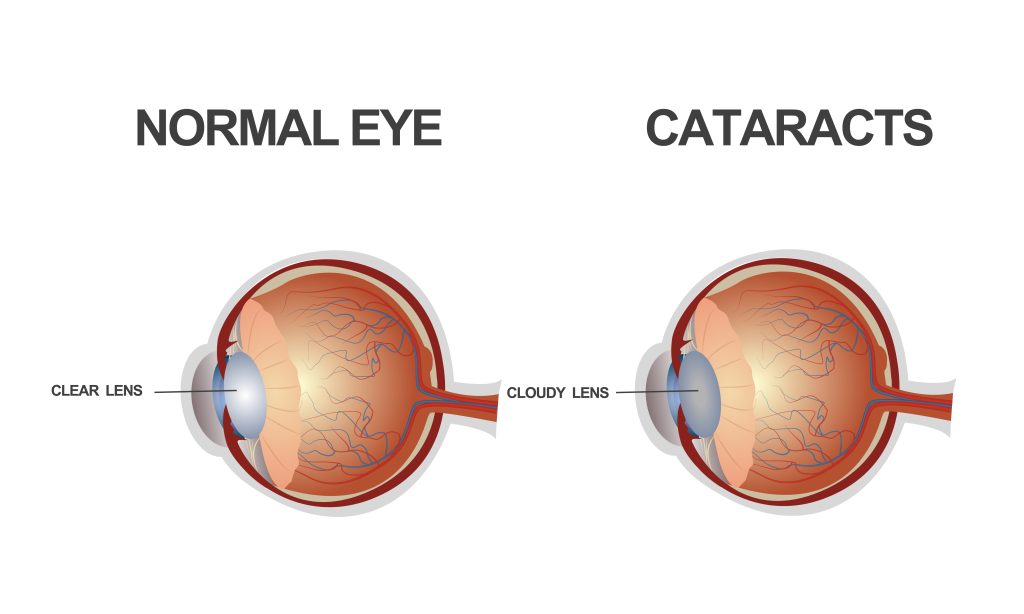
Register here for a free eye checkup

We're dedicated to help you protect & preserve your sight
This Month
Get a Free Eye Check-up For Cataract At Anil Eye Hospital Thane Branch.
Early diagnosis, screening and treatment procedures Done by State-of-the-Art diagnostic and therapeutic modalities
50 years of trusted brand by millions of people is now in Thane.
We have treated more than 15 lakh+ patients in the areas of Dombivli, Kalyan, Palava and Now in Thane
A cataract is an eye condition that affects many people and causes the natural lens that is found in the eye to become cloudy.
It is usually connected with aging, but it can also be caused by other reasons like as heredity, injuries, or certain medications. Surgery is the only way to treat cataracts.During the procedure, the affected lens will be surgically removed and replaced with an artificial lens.
- Gradual blurring or dimming of vision
- Colors may appear faded or yellowed
- Double vision in one eye or both
- Frequent changes in eyeglass prescription
- Poor night vision
- Clouded or hazy vision
Diagnosis And Treatment for Myopia
Diagnosis
Professional eye exams are needed to diagnose cataracts. This involves visual acuity testing, slit lamp lens examinations for clouding or opacity, and pupil dilation to examine the lens and other eye components. By assessing symptoms, medical history, and test results, the eye doctor can diagnose cataracts and recommend treatment.
Treatment:
It only includes correction of refractive error in one of the following ways:
1. Cataract surgery is the primary treatment option.
2. Intraocular lens (IOL) implantation replaces the clouded lens.
3. Phacoemulsification is a common surgical technique.
4. Laser-assisted cataract surgery offers precision.
5. Prescription glasses or contact lenses may temporarily improve vision.

Dr. Anagha Heroor
Cataract, Glaucoma and Refractive Surgeon, Managing Director - Anil Eye Hospital
Dr Anagha Heroor is the Managing Director of Anil Eye Hospital Group – Dombivli, Palava, Kalyan, and Thane. She is a well-known and one of the most experienced ophthalmologists in India known for her immense ophthalmological work over the past three decades.
Our personalized care results in optimum patient outcomes for everyone
Lasik Clinic
Pediatric Opthalmology
Cataract Clinic
Dry Eyes Treatment
Glaucoma
Squint & Oculoplasty Clinic
Proud To Achieve
Lasik Treatments Done
Treated Cataract Cases Successfully
Patients Served
Frequently Asked Questions
A cataract is a clouding of the normally clear natural lens of the eye. This clouding impairs vision and may result in many kinds of visual impairments.
Age, UV radiation exposure, smoking, diabetes, some medications, and genetic factors can all cause cataract development.
Cataracts are extremely frequent, particularly in the elderly. They rank among the main global causes of visual impairment.
Blurred or foggy vision, trouble seeing at night, heightened light sensitivity, seeing haloes around lights, and faded colours are common symptoms.
Although cataracts cannot always be prevented, you can lower your risk by not smoking and by donning sunglasses to shield your eyes from UV radiation.
A thorough eye exam, which could involve a dilated eye exam, a slit-lamp examination, and a visual acuity test, can be used by an eye doctor to identify cataracts.
In order to restore clear vision, cataract surgery involves removing the clouded natural lens and replacing it with an artificial intraocular lens (IOL).
No, following cataract surgery, cataracts do not recur. On the other hand, a straightforward laser surgery can treat posterior capsule opacification (PCO), a subsequent ailment that some patients may develop.